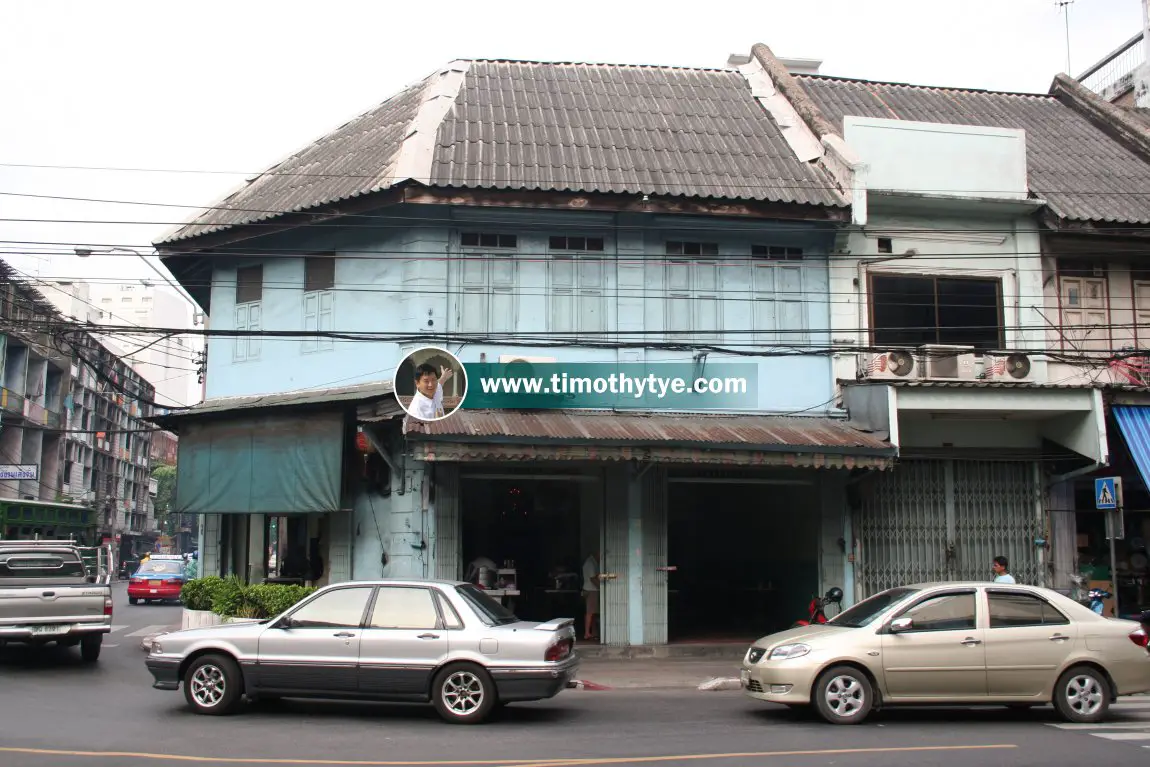Sampheng, also called Samphanthawong district, is the Chinatown of Bangkok. It was here that the Chinese merchants and traders settled after their original settlement at Phra Nakhon district at the bend of the Chao Phraya River was taken over by King Rama I, to create the Rattanakosin district in which the king constructed the Grand Palace. Today, two hundred years after they settled at Samphanthawong, Chinatown continues to have a distinctly Chinese feel to it.
When the Chinese arrived in Samphanthawong, there were few roads. One of them was Sampheng Road, which today is known as Wanit I Road. It was the main road in Sampheng until the construction of Yaowarat Road in 1892.
For a Chinatown experience, walk along Thanon Yaowarat and Soi Issaranuphap. Within the Chinatown of Bangkok, like many other Chinatowns in other cities of the world, one can find medicine shops, gold merchants and sidewalk stalls punctuated by the occasional Chinese temple. At the east end of Chinatown, near the Thien Fah Foundation, is a Chinese Gate erected to commemorate King Bhumibol's 72nd birthday. It is often called Odean Gate, after the Odean theatre that used to stand nearby. The Hualamphong Railway Station forms the east end of Chinatown while the Indian community of Pahurat is immediately to the west.
 An old house on Charoen Krung Road, at the junction with Khao Lam Road, in the Bangkok Chinatown (29 August, 2006)
An old house on Charoen Krung Road, at the junction with Khao Lam Road, in the Bangkok Chinatown (29 August, 2006)
Yaowarat Road
Yaowarat Road is today regarded as the high street of Chinatown. Until it was built in 1892, the main road in Chinatown was Sampheng Road, which today is called Soi Wanit 1 (Wanit 1 Lane). Yaowarat Road extends for about 1.5 kilometers, and both sides are bustling with shops selling a variety of Chinese merchadise.Chinatown Gate
Chinatown Gate is an archway, often called Odean Gate, which was erected to commemorate the 72th birthday of King Bhumibol Adulyadej.Getting there
Take the MRT to Hualamphong Railway Station, which is the western gateway into Chinatown. You can also go there by boat, alighting at the Ratchawong Cross Ferry Pier and then walking Ratchawong Road that takes you to the centre of Chinatown.Nearby Sights
- Chinatown Gate
- Wat Traimit: Temple famous for the biggest solid-gold Buddha statue in the world
- Wat Pathum Khongkha: This is an ancient Buddhist temple which was originally known as Wat Sampheng
- Wat Chakkrawat
- Leng Buai Ia Shrine: oldest Chinese shrine in the area, over 300 years old
- Ah Nia Geng Shrine: shrine to the Kuan Yin
- Guan U shrine
- Thian Fah Hospital: Hospital established by the Chinese to provide health care for the poor.
- Bunyasamakhom Shrine
List of Neighbourhoods in Bangkok; list of Districts of Bangkok
 Latest updates on Penang Travel Tips
Latest updates on Penang Travel Tips
 Map of Roads in Penang
Map of Roads in Penang
Looking for information on Penang? Use this Map of Roads in Penang to zoom in on information about Penang, brought to you road by road.
Copyright © 2003-2025 Timothy Tye. All Rights Reserved.

 Go Back
Go Back